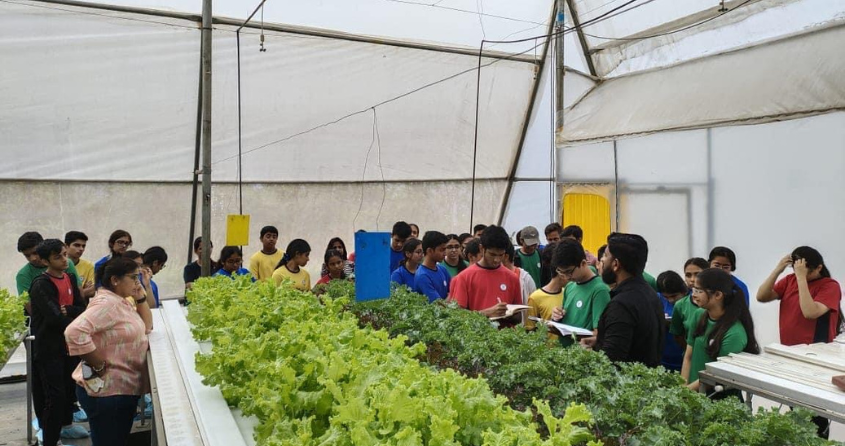In recent years, organic farming has gained significant traction as a sustainable agricultural practice that not only benefits the environment but also promotes human health.
As consumers become more aware of the impact of their food choices on their well-being and the planet, organic farming has emerged as a viable solution to many of the challenges posed by conventional agriculture.
At Fazlani Globale, the commitment to organic farming is evident through various initiatives that emphasize the importance of eco-friendly practices.
Understanding Organic Farming
Organic farming is an agricultural system that focuses on cultivating crops without the use of synthetic fertilizers, pesticides, or genetically modified organisms (GMOs). Instead, it relies on natural processes, biodiversity, and ecological balance to maintain soil health and promote plant growth.
This method of farming has numerous health benefits, both for consumers and the environment.
- Nutrient-Rich Produce
– One of the primary health benefits of organic farming is the enhanced nutritional value of organic produce. Studies have shown that organic fruits and vegetables often contain higher levels of essential nutrients, including vitamins, minerals, and antioxidants, compared to conventionally grown counterparts.
– For instance, organic tomatoes have been found to have significantly higher levels of vitamin C and phenolic compounds, which are known for their antioxidant properties.
At Fazlani Globale, the emphasis on organic farming ensures that students and the community have access to nutrient-rich produce. By incorporating organic fruits and vegetables into their meals, individuals can improve their overall health and well-being.
- Reduced Chemical Exposure
– Conventional farming practices often involve the use of harmful chemicals, such as pesticides and herbicides, which can have detrimental effects on human health. Exposure to these chemicals has been linked to various health issues, including respiratory problems, hormonal imbalances, and even cancer.
– By choosing organic produce, consumers significantly reduce their exposure to these harmful substances. Fazlani promotes organic farming practices that prioritize the health of consumers by minimizing chemical use. This commitment not only protects individuals but also contributes to a healthier ecosystem.
- Enhanced Soil Health
– Organic farming practices focus on building healthy soil through composting, crop rotation, and the use of cover crops. Healthy soil is rich in organic matter and beneficial microorganisms, which contribute to the overall health of plants. This, in turn, leads to healthier produce.
– At Fazlani Globale, the integration of organic farming principles into educational programs allows students to learn about the importance of soil health. By understanding the relationship between soil quality and plant health, students are better equipped to advocate for sustainable agricultural practices in the future.
- Support for Local Economies
– Organic farming often involves local farmers who practice sustainable agriculture, which helps support local economies. By purchasing organic produce from local sources, consumers contribute to the livelihoods of farmers and promote community resilience.
– Fazlani Globale emphasizes the importance of supporting local agriculture through its farm-to-table initiatives. By sourcing organic produce from nearby farms, the institution not only provides fresh and healthy food options but also strengthens the local economy and fosters a sense of community.
- Promoting Biodiversity
– Organic farming practices encourage biodiversity by promoting a variety of crops and minimizing monoculture. This diversity is essential for maintaining healthy ecosystems and protecting against pests and diseases. Additionally, organic farms often serve as habitats for beneficial insects, birds, and other wildlife.
– At Fazlani Globale, students are exposed to the principles of biodiversity through hands-on learning experiences in organic farming. By understanding the importance of biodiversity in agriculture, students can become advocates for sustainable practices that protect the environment.
- Sustainable Food Systems
– Organic farming is a key component of sustainable food systems that prioritize environmental health, social equity, and economic viability. By promoting organic practices, Fazlani Globale contributes to the development of a more sustainable food system that benefits both people and the planet.
– Through educational initiatives, students learn about the importance of sustainable food systems and the role of organic farming in addressing global challenges such as climate change, food security, and environmental degradation.
Conclusion
The health benefits of organic farming are numerous and far-reaching. From providing nutrient-rich produce and reducing chemical exposure to promoting biodiversity and supporting local economies, organic farming is a vital practice for fostering individual and environmental health.
At Fazlani Globale, the commitment to organic farming is evident through various initiatives that prioritize sustainability and health.
As we face increasing global challenges related to food production and environmental sustainability, the importance of organic farming cannot be overstated. By choosing organic, we not only invest in our health but also contribute to a healthier planet for future generations.
Fazlani Globale is not just teaching students about organic farming; it is cultivating a generation of environmentally conscious individuals who will carry forward the principles of sustainability.
Through education, hands-on experiences, and community engagement, Fazlani Globale is shaping a brighter, healthier future for all. Embracing organic farming is more than a trend; it is a necessary step toward a sustainable and healthy world.






